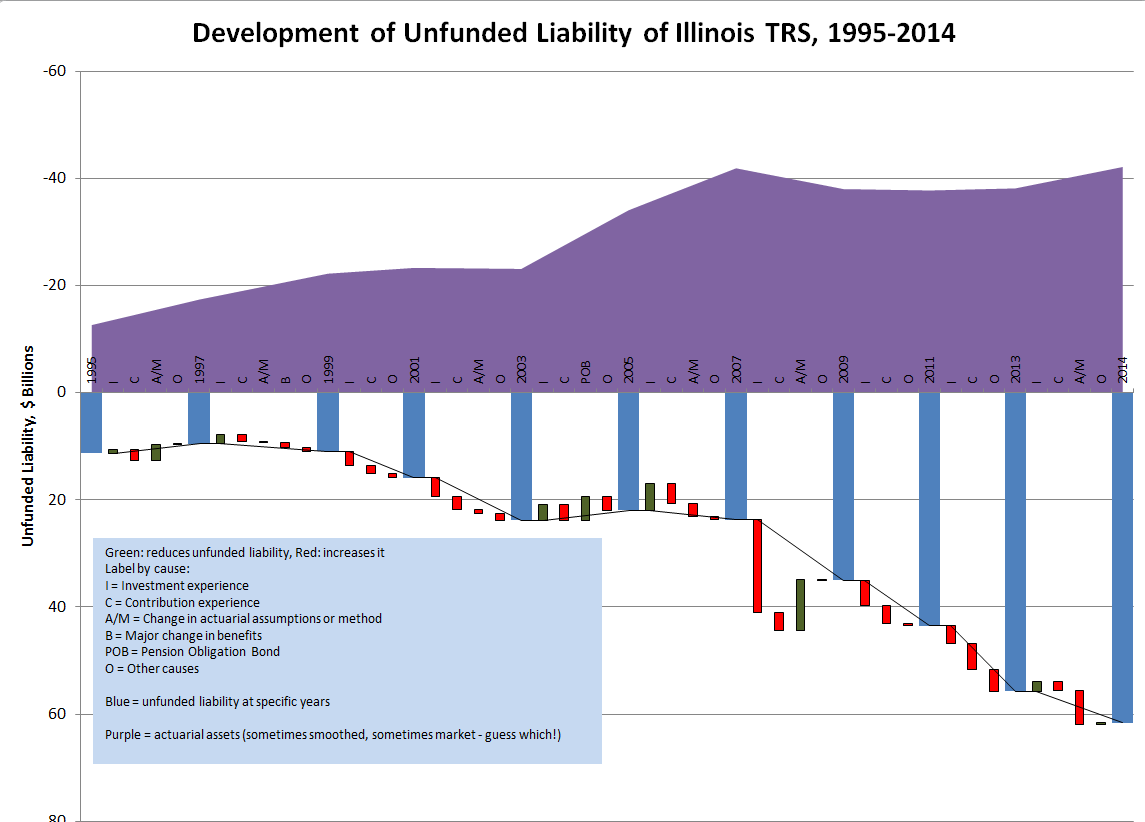I look back at why pension obligation bonds were pursued by public pension plans, whether they were a good idea, and specifically what makes them OF THE DEVIL (and what that means). Yes, I hope that got your attention.
To be sure, with increasing interest rates right now, POB deals will be few and far between, but I want to take a snapshot of why POBs are not ONE CLEVER TRICK for solving public pension plan problems. They’re more a way to make a bad situation worse.
Episode Links
As you can see, the 10-year rate is currently at a level around where we last saw it pre-Grand Recession.
Marc Joffe from Reason Foundation
June 2022: The risks of issuing pension obligation bonds are rising with inflation, interest rates
The Federal Reserve’s effort to rein in inflation might be closing the window on state and local governments’ opportunity to reduce pension burdens by issuing pension obligation bonds. These pension obligation bonds are frequently used by public employers with large pension liabilities. But do they benefit the governments that issue them?
If assets acquired with public obligation bond (POB) proceeds yield more than the bonds’ interest and issuance costs, the government will have additional resources to meet its pension obligations over the life of the bond. For POB deals to work out, asset returns must exceed debt servicing costs. While servicing costs are predictable, asset returns vary from year to year. For example, most public pension systems achieved very large positive investment returns in the 2021 fiscal year, but this year most pension systems will post negative investment returns.
Given the unpredictability of investment returns, it is advisable to issue public obligation bonds only when there is a large margin between expected returns and servicing costs to provide a cushion for prediction errors. In late 2021, a big difference between POB interest rates and assumed returns on assets arguably existed for many issuers, offering a healthy margin. Now, however, with borrowing costs rising, this cushion has eroded.
STUMP on Pension Obligation Bonds
7 Feb 2015: Pension Obligations Bonds ARE OF THE DEVIL (Don't do it, Brownback!)
But pensions aren’t a capital asset/expense. They’re an operational expense. They are for paying for current service by giving some money in the future, but the expense is incurred right now.
Just like when I go out to a fancy restaurant and put that tab on my credit card. I usually pay off my balance in full each month for credit cards, because I use them to pay for my current, operational expenses like groceries, the energy bill, my Amazon habit. If all I did was keep charging operational expenses to my credit cards and not paying off the balance, I’d be accruing debt like the unfunded liability in public pensions. The credit cards don’t expect me to pay off all the balance all at once, but I don’t need to be still paying for today’s meal at Per Se for the next thirty years.
That’s the unfunded liability, in analogy: a large credit card balance. Living beyond your means. Saying that you’ll pay for current expenses by future income… somehow.
So what would a Pension Obligation Bond analogy be?
Credit card balance transfer. The pension debt is being transferred from a debt to the pension fund to a debt to the POB holders.
I happen to do credit card balances all the time, because I do sometimes have short-term large expenses, and I want to spread it out over a year. So I will transfer the balance with one of those 0% promo APRs (with an up front 3% transfer fee). That’s fine by me, because I know I will have paid off that balance by the time the 0% is finished.
Now, what would be crazy to do (and what I have seen people do) is to use one of those balance transfers or cash advances so I can go gamble in Vegas. And if I lose…. good luck paying off that credit card.
I had this argument with a friend during the dot com boom, btw. He was racking up credit card debt, and held a large amount of stock and options in his own company (that had been going great guns in growth). I argued that he needed to pay off the sure debt (which wouldn’t wipe out all his stock holdings, btw) instead of assuming that the stock would grow 20% per year for sure. Because it wouldn’t.
And it didn’t.
Likewise, using a POB just so a pension fund can chase the yield it can’t get without taking on a lot of risk… yeah, that’s asking for trouble.
The reason POBs are of the devil is that they use accounting maneuvers that no private entity would be allowed to use — you would not be allowed to issue a bond and declare that you made a profit on the deal at issuance. That’s what is being argued when they say the 5% interest bond is going into cash that will for sure return 8%. That’s the argument.
And what if the market crashes?
What then?
16 Feb 2015: Why are Pension Obligation Bonds OF THE DEVIL? A Lesson from the Dollar Auction
You can barely see it, but there was a POB between 2003 and 2005. It barely made a dent in the unfunded pension liability.
And what then? In the ten years since 2005, Illinois underfunded the TRS pension fund by at least a billion dollars a year.
With regards to contributions, there was a choice on the part of the “government”.
With regards to all the other reasons for shortfalls — investment experience, experience in salary changes and longevity — the government had less direct control. But they definitely had a choice with regards to how much of the budget to apply to the pensions.
And every damn year, the Illinois government made a conscious decision to shortchange the pension. That was not an accident.
…..
Only accounting magic makes the debt look smaller than it actually is. And the debt to the pension fund is actually larger than originally stated. Now the state has two creditors: the holders of the POBs and the pension fund. That sounds more like the dollar auction now.
The POB debt is “sure” — the state is supposed to pay off the interest and the principal. The pension debt is less sure, but somehow it seems to grow even faster after this particular POB trick.
And the only states that feel the need to avail themselves of this particular trick tend to have gotten in their position by bad behavior, and they’re not about to change their behavior after the POB is issued.
This is why I say POBs are of the devil — whether or not you believe in a literal devil, the literary devil is the kind that helps you rationalize the bad behavior you already did and are determined on continuing.
Ask Faust about how that worked out for him.
2018: Two Awful Tastes That Go Great Together: Pension Obligation Bonds and 80% Funding Myth
FINANCIAL LEVERAGE
I am put to mind of the people I knew in the 90s who were trading on margin.
Leverage in the financial world works similar to levers in the physical world: it amplifies things.
If you overshoot your target return, leverage amplifies it, and you make even more money! YAY!
But if you undershoot it, that undershooting is also amplified. You now have even more promises you have to fulfill.
I am not a market-timer, but it seems to me that timing is of the essence for these POBs.
















Share this post